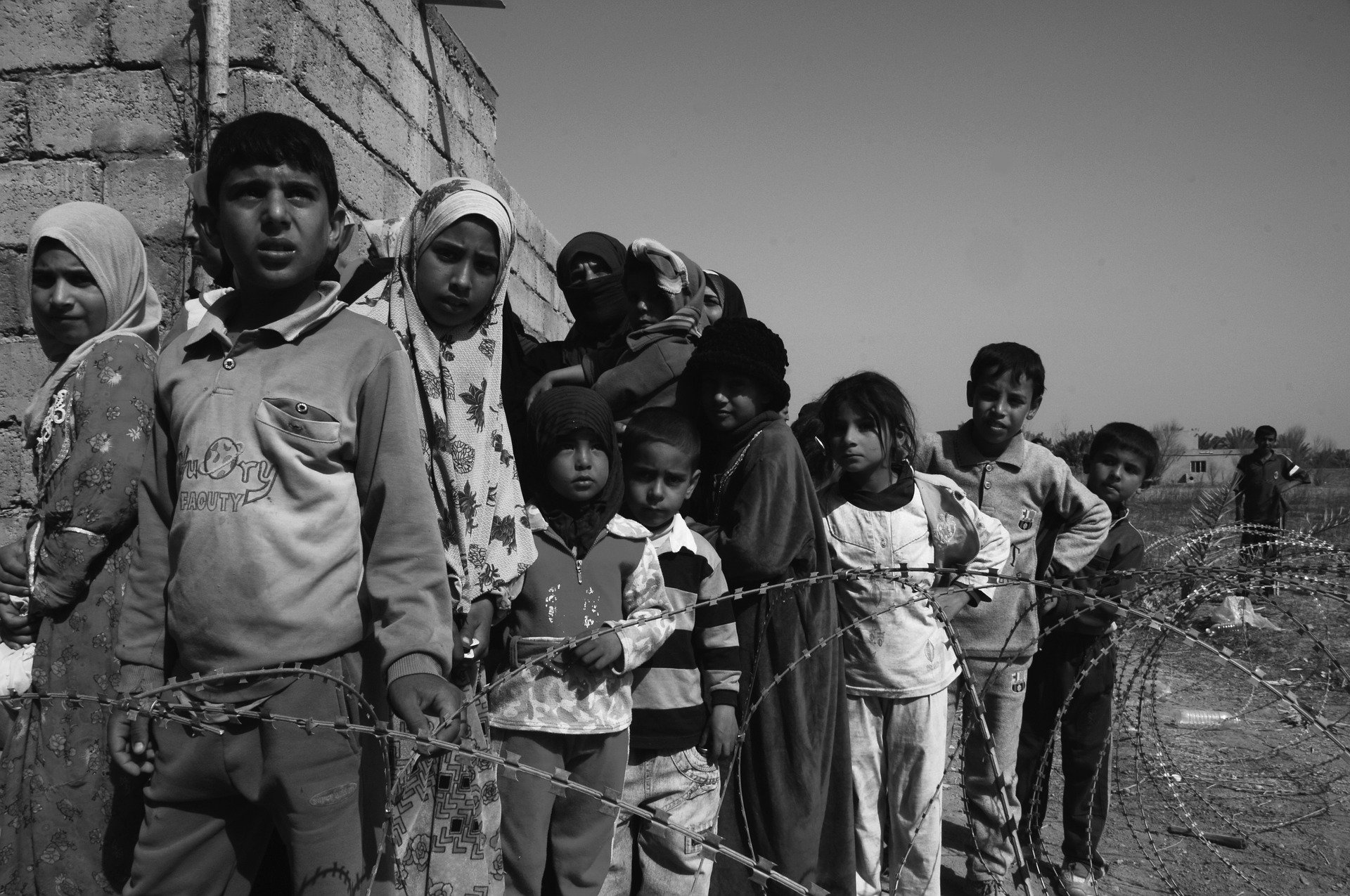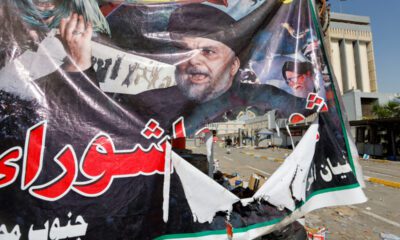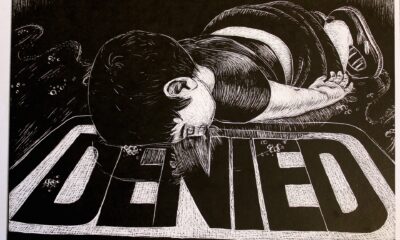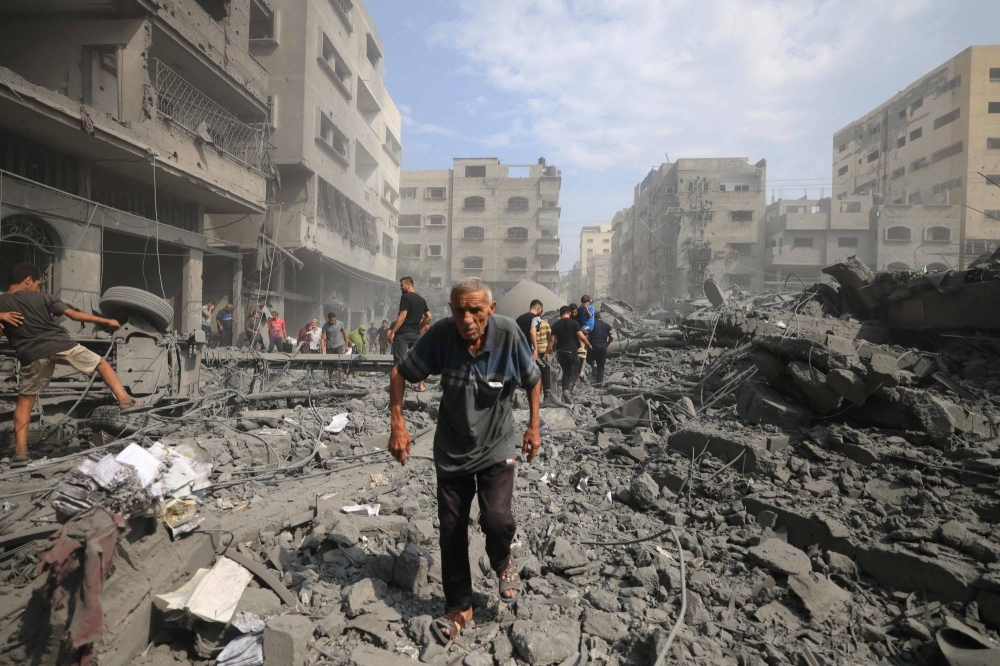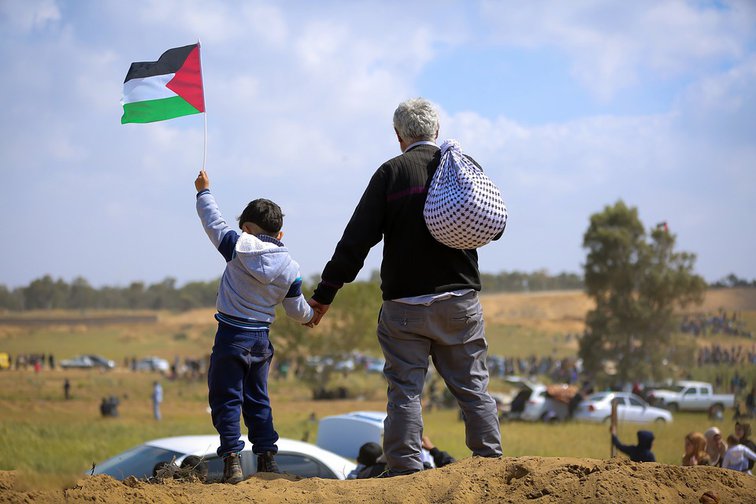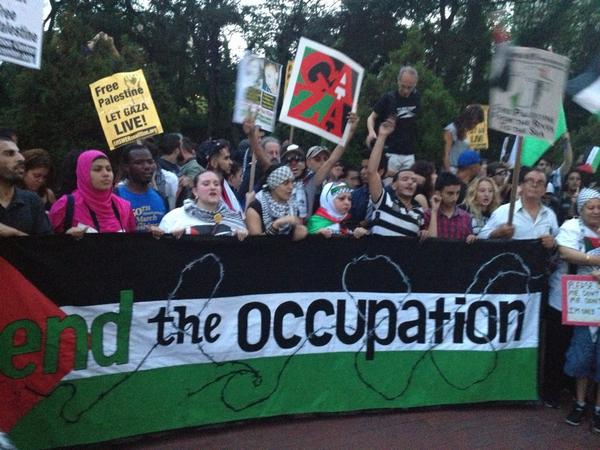Thirty-five years ago, one of the longest battles of the past century broke out. Yet the echoes of today persist as a bloody eight-year conflict between Iran and Iraq. “The war is still going on on many fronts,” the Iraqi poet and writer Sinan Antoon reflects that he grew up in Baghdad.
“Our neighbour lost both legs in the battle,” remembers Antoon, currently an associate professor at the Gallatin School at New York University. “If Saddam Hussein gives up his fighting in 1990, my neighbour replied, ‘Why have I lost my legs?’ It is believed that one million lives have been destroyed. A whole generation was scarred on all sides of the rift.
The lessons gained have already been gained in an area now overwhelmed by fire-destroyed proxy wars between the international and international powers. Syria, Iraq, and Yemen have been all torn up by growing fault lines: Sunni Shia, Persians against the Arabs, and “Fresh Cold War” alliances established in Moscow-Washington. Iraq was under the oppressive control of Saddam Hussein, who was eventually overthrown, convicted, and assassinated in reaction to the 2003 U.S.-led invasion.
Nearby Iran was governed by Ayatollah Khomeini, who had just returned from exile to direct the 1979 Iranian Revolt that had forced out the Shah. His nation was battled by a clash with his arch-rival Saddam to strengthen his uprising against home foes.
Olden Battle
After months of growing cross-border tension, the conflict escalated in September 1980. Iraqi troops marched several hundred miles to Iranian territory and their warplanes entered Tehran Airport.
“While Sadam is legitimately liable for an illegal invasion, Khomeini provoked subversion and massive propaganda,” argues Professor Mansur Farhang, who was Iran’s ambassador to the United Nations until a year before the war and partnered with foreign brokers to avoid it in the first years of the war.
As the war continued, foreign allies helped both parties, and Iraq was a key source of economic and military aid from the United States. Iran’s military powers were also inspired by the astonishment of its front-flooded soldiers.
While it became regarded as the “olden battle” over the years, Iran and Iraq proceeded to pay an incredibly high amount. Output the world has woken up to the magnitude of the devastation as Saddam has launched violence against Iranian enemies through chemical bombs and backed through his Iraqi Kurds.
Iran was still seeking to find a way out when the American cruiser USS Vincennes murdered 290 passengers on Iran Air Flight 655 in July 1988. The US administration expressed ‘strong sorrow’ but intensified Iran’s concern that Washington would deliberately engage in this conflagration. Ayatollah Khomeini has described his preliminary decision to support the UN resolution to end hostilities as ‘drinking poison.’
Iran’s Influence over Iraq
Three decades later we use the description to define the harsh decision taken to welcome world powers, including the US, by their successor Ayatollah Khamenei this year to significantly shorten its nuclear program. But today Iran has firm influence over Iraq’s firm Shia leadership and several well-armed militias in the area. And Iraq has gone from war to war since 1988 and has now been grappling with the terrifying emergence of the “Islamic State,” a virulent rebellion against the Shia law.
Within an 8 year of the war, Ayatollah Khomeini tried to unite the Shia group in Iraq and could not organize them. Nevertheless, racial tensions persist for most of the violence that now cuts into Iraq’s very existence as a united state.
And neighboring Syria is a battleground between Iran-Russia-supported forces of President Assad and Arab-Western armed opposition factions. The most devastating thing of all, the rising misery of millions of citizens now forced from home is the massive influx of desperate asylum seekers to Europe.
Iraqi Ahmed al-Mushatat, who was embroiled in a dispute in the 1980s after his medical studies, is now a frequent chapter in the region: “We assumed it might never stop. Wars are officially done. But today’s tensions threaten to further perpetuate the tensions of the last century.
Consequences of war
The tale of “futile battle” springs to mind as you want to look critically and retrospectively at the Iran-Iraq war. Who lost? Who lost? Or, maybe you might wonder, who won the fight at the end of almost ten years? There were air and land fights along the 1,000-kilometer frontier, and neither Iraq nor Iran could claim a lasting success nor impose its will and policy on the August 20, 1988, ceasefire.
Much Iraqi youth were involved in the fighting and post-traumatic disorder was already struggling for those fortunate enough to be unscathed on the war front. The war also produced a century of widows and orphans in which Iraqi society in its entirety could not rebound from nor reintegrate the state because of the Gulf War of 1991 and subsequent sanctions.
Iraqis were tricked into this relentless War by the accumulation of high domestic debt and the crippling consequences on their oil economies. A Jingoistic approach, the Baathist propaganda machine branded the Iran-Iraq War as the “Eastern Arab World border defence from Iranian hegemony,” thus raising the dependence of Arab neighbours and Western states – like the US – who opposed the newly formed Islamic Republic of Iran.
This gap between Iraq’s strong demands for Gulf Cooperation Council Countries (GCC) incentives mirrored their absence of reaction and empathy, which further raised tensions and aggressive Saddam-led policies. Ordinary Iraqis felt that the GCC countries were pushing and using them to stop Iran’s drive at the time to spread its Islamic revolution. To make matters worse, there has never been financial assistance and settlement promised to Iraq by any of the GCC countries during the 1980-1988 war.
Economic and Social Collapse
Consequently, Iraqis consider the conclusion of the Iran-Iraq war as the starting point of the economic and social collapse of their nations. The oil boom of the 1970s and its parallel economic development finally only substituted in the 1990s for isolationism. For ordinary Iraqis, Matt, Hana, or “the grinder,” comes to mind as the first word in the description of the Iran-Iraq War. Saddam invaded Kuwait in August 1990, which later triggered the paralyzing multilateral sanctions against Iraq and, probably, the 2003 US invasion of the country.
Has the Iran-Iraq War hits its goals? Well, on which side it is studied. It depends. While the eight-year war hindered Tehran and Baghdad’s economic development, it created a zero-sum culture between the two countries and left the Middle East volatile and dysfunctional. It is not a minor occurrence to ignore and historians do not treat it as a typical community boundary battle. The implications of this mechanism are not well known and, to say the least, have led to the development of a generation of Iraqis and Iranians who overruled the diplomacy and soft power which are now evident in their use of military and covert operations.
Around the same time, the war led to a distinct polarization within the Arab World by claiming positions and choosing sides. Syria and Libya were side by side with Tehran, while Baghdad was side by side with Egypt, Jordan, and much of the GCC. By 1988 a new strategic map of allies and enemies had been created.
The Iran-Iraq war has prompted sectarianism to increase in the Middle East. It became an instrument and an excuse for intensified political sectarianism used by Baghdad and Tehran and their regional supporters. By the end of the war, its sectarian character and its propagation as such were a symbol of a growing topic in the Middle East.
The GCC states may have spoken in the words “Arab” and “Persian,” but they said the words “Sunni” and “Shia.” Saudi Arabia and other nearby Arab countries felt threatened with Shia membership by the Islamic Revolution of 1979. Saddam was then championed by Sunni Muslims in the wake of the current movement headed by Ayatollah. Iraqi Shias were the first victim of this newly developed sectarianism, as evidenced by the result of the Iraqi revolts in the south in 1991.
Thirty years later, amid the difficulties of the Gulf War in 1991, strict multilateral sanctions, and the US occupation in 2003, generations of Iraqis have yet to erase the wounds of the unsuccessful Iran-Iraq war. Its effects are still felt today in the Middle East.



 Featured9 months ago
Featured9 months ago


 Featured10 months ago
Featured10 months ago


 Featured2 years ago
Featured2 years ago


 Featured4 years ago
Featured4 years ago


 Featured3 years ago
Featured3 years ago


 Featured10 months ago
Featured10 months ago


 Featured2 years ago
Featured2 years ago


 Featured4 years ago
Featured4 years ago
